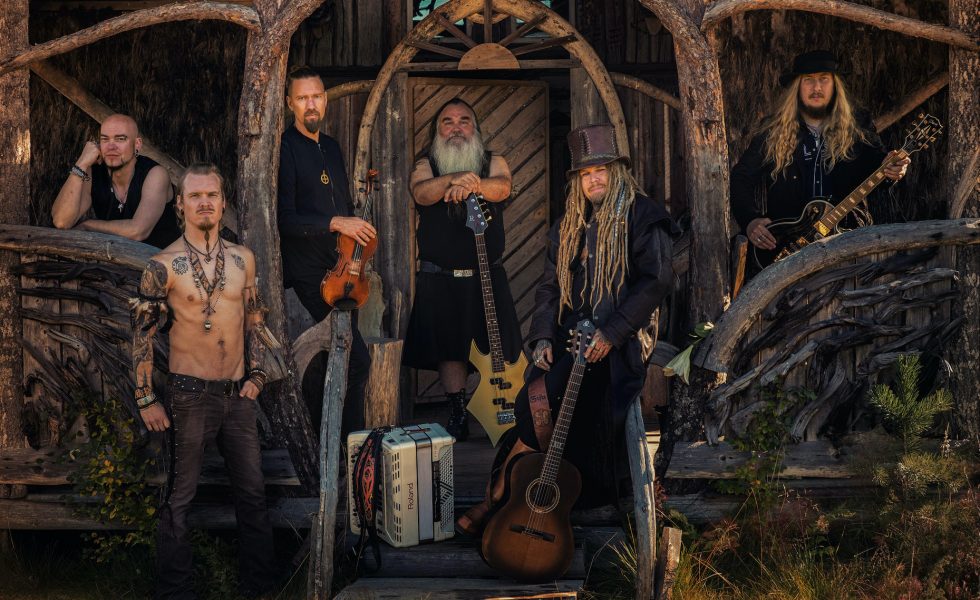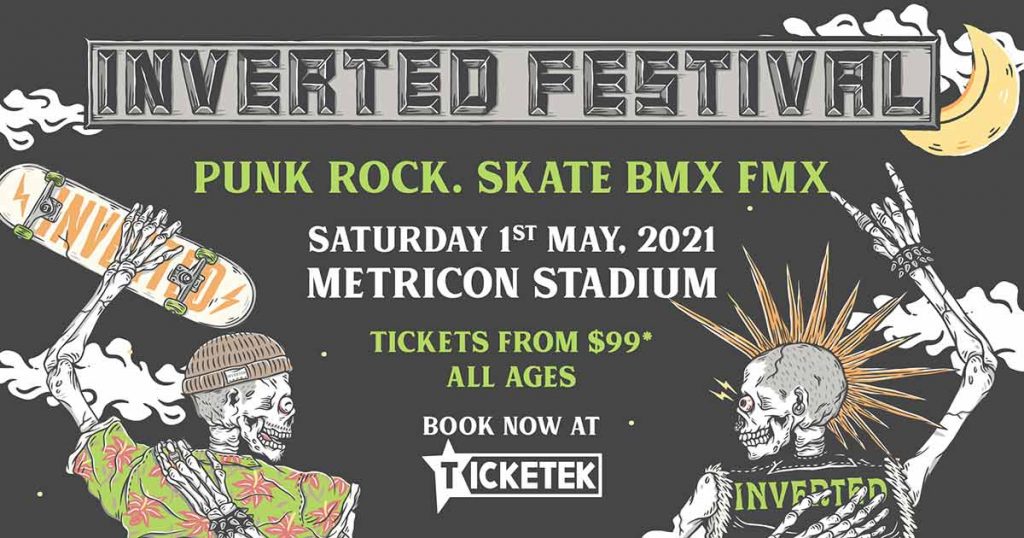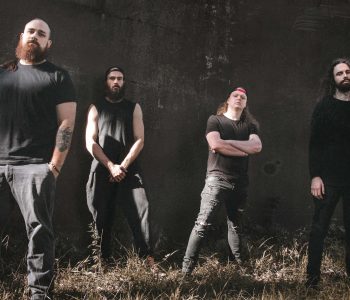As Flaming Wrekage’s brutal fourth album tickles your earholes, you know this is something special. …
Bunkered down at home during the Finnish winter where it is currently 20 below zero outside, Korpiklaani violinist Tuomas Rounakari is in a jovial mood as he discusses the folk-metal band’s eleventh album, the enigmatically titled Jylhä, and the strong cultural story-telling tradition behind their unique musical approach.
MORE: BRING ME THE HORIZON: The Tide Is Turning // KILLER BE KILLED: Reluctant Heroes // MR BUNGLE: Surprise! We’re Death! REVIEWS: MR BUNGLE: The Raging Wrath of the Easter Bunny Demo // BRING ME THE HORIZON: POST HUMAN:SURVIVAL HORROR // KILLER BE KILLED: Reluctant Hero // YOU ME AT SIX: SUCKAPUNCH // KORPIKLAANI: Jylhä
Hysteria: I’m old enough to remember when Finland only had about three metal bands anyone knew about: Stratovarius, Amorphis and Impaled Nazarene. Now they seem to be everywhere.
Tuomas Rounakari: There are a few around! It’s become kind of a phenomenon of its own. Even Obama talked about Finnish metal bands during his last year as President, so that was kind of cool.
As someone who is actively involved in the metal scene there, are you able to give some kind of insight into why Finland seems to have such a huge number of metal bands?
Well first of all, this is a pretty dark country! Also, our sense of humour is pretty dark, so I think that we tend to rest and relax with quite dark things. And also storytelling is important in our history, and I think metal is interesting in that sense, because, especially the folk metal bands, they focus on good stories .You hear a lot of pop music being about the same thing over and over again, and ridiculous content – stories about how everyday life sucks, and how everyday life doesn’t suck! Ha! But I think it’s way more interesting to make stories about something else other than everyday life. Something that has more creative juice and imagination. In Finland we tend to escape into these stories by nature. That could be one reason for it. Another reason is that before the Internet started delivering entertainment to every corner of the world, a lot of people over here didn’t have much to do, so if you had a guitar and an amplifier, you were spending a lot of hours in a basement somewhere, just playing. So that contributes to why Finland has such a high number of professional musicians per capita.
A lot of Finnish metal bands are either folk metal bands, or have that aspect in their music.
Amorphis had that aspect early on, Finntroll, Moonsorrow and, of course, Korpiklaani whom I understand started out as a folk band and then became metal later on, which is kind of the opposite of what everyone else seems to do.
So Korpiklaani is maybe the only band that sticks to the folk metal genre. Many of these bands say that they are not a folk metal band anymore, or try to explain what they do in some other terms, than folk metal. But we really are folk metal—we are about folk and metal together, and that’s it. We owe so much to both of those traditions, to the Finnish folk music tradition and especially to the poetry where we take most of our lyrics from, and also to the tradition of heavy metal, mainly bands like Black Sabbath and Motörhead, very guitar riff-driven metal. So that’s where we’re coming from. What’s the use of denying that?
You hear a lot of pop music being about the same thing over and over again, and ridiculous content – stories about how everyday life sucks, and how everyday life doesn’t suck! Ha! But I think it’s way more interesting to make stories about something else other than everyday life. Something that has more creative juice and imagination.
[ Tuomas Rounakari ]
The traditions are very similar, especially with the story-telling aspect. Metal’s always been good for that, and with folk that is pretty much what it’s about. Korpiklaani was already established as a folk band before bringing the metal side in, which I guess many people would think is strange. You joined after the sound had been established. Were you already a fan when you were asked to join the band?
It was a little of the other way around. I have my solo career, that I’m still active in, Shamanviolin, a one-man band where I play music that comes from the shamanic cultures of the Arctic. Jonne (Järvelä) was kind of a fan of me, and Shamanviolin, and quite a devotee of my work. He called me and asked me to join. I knew the band but I wasn’t a hardcore fan or anything. I had only run into the band about a year before he called me, so it was an interesting thing in that sense. But what really attracted me about Korpiklaani was that it is a really unique band. Genres aren’t important to me at all. I don’t even think about genres myself. What I’m looking for is a unique way of doing something. I love Tom Waits, for example. He’s one of those one-of-a-kind artists, or John Zorn with his saxophone doing all kinds of weird things that you’re not used to hearing saxophone doing… Jethro Tull was a big inspiration – Ian Anderson on flute. All of these things are up my alley. Korpiklaani has this very unique sound, doing things differently to everyone else. That’s what caught my attention.
What’s also interesting about Korpiklaani is that the lyrics are in Finnish, which is different because so many bands, regardless of where they’re from, use mainly English. The Finnish language seems to be one that other bands from your country seem to steer away from. Tomi Joutsen from Amorphis said once that singing metal in Finnish sounds very aggressive and strange.
This is a big topic! I would heavily disagree on that comment. We have the largest collection of folk poems in the whole world in Finland. We’re talking about over 100,000 poems collected from the early 19th Century onwards, and all of these poems are made into songs. So I think history proves me right here, that Finnish is a suitable language for singing! But it is true that this poetry is in a very specific form of language, and differentiates from the spoken, everyday language. There’s also a cultural thing. You can say whatever bullshit in English. Like, in English, anything goes. It kind of works. But in Finnish, we spend hours making fun of things when we translate songs from English into Finnish – they don’t make any sense! Nobody buys the same lyrics when you turn it into Finnish! There’s something in our nature that is a bit ironic, a bit cynical. But there’s also a lot of humour in the way our mentality works, it’s very dark. We are the opposite of the Americans. Don’t bring love to the table unless you can back that claim up! It would be absolute nonsense to try and change the lyrics from Finnish, and it’s also difficult to make great lyrics in Finland because of this, because nobody buys any bullshit.
Let’s talk something about the current album now. What exactly is the title?
This is funny. We didn’t do this intentionally, but we chose an album name that doesn’t translate into English at all and is impossible to pronounce! Jylhä!
The songs are drawn from the Finnish tradition, are they?
This time we are looking at the tradition from a slightly different angle. There are some murder stories there, one about the Lake Bodom murders that shocked the whole country in 1980. So this time we are playing with the idea of reality and myth, and how do they combine? It’s an interesting question to ask, because sometimes you have stories and myths that you can’t believe are true, and then you find some archaeological evidence that backs that story up. So it is a little difficult to say what is true – what is historically true – and what is imaginary stories. Because myths sort of combine the essence of the experience of the people through a very long period of time. It’s like the history of their mentality, in a way. For example, Leväluhta is about this place in Finland where a lot of bodies were found in a swamp. We don’t bury our bodies in swamps in this culture, so something bizarre was going on, and yet we have no clue. We have this swamp out there, full of bodies. What does that mean, spiritually? These kinds of questions are dominating this album. The further you go down through history, the more difficult it is to draw that line.
So what do you do now apart from enjoy the fact that the album is out? It must be difficult and frustrating for you to not be able to go out and tour or even play a show.
Even with the lowest numbers of cases and deaths in Europe, our government has been very strict. We can’t even play shows in Finland right now. It’s impossible for us to make any plans right now. For one and a half years, nothing in my calendar has stayed! I’m fed up with it. I don’t even mark anything in the calendar anymore!





